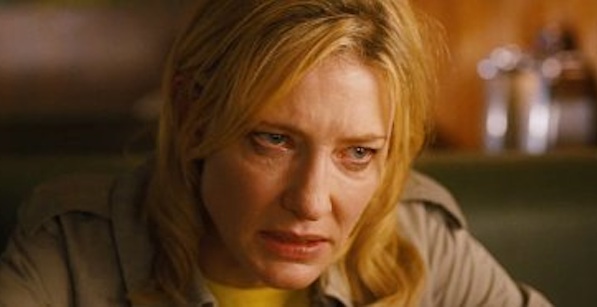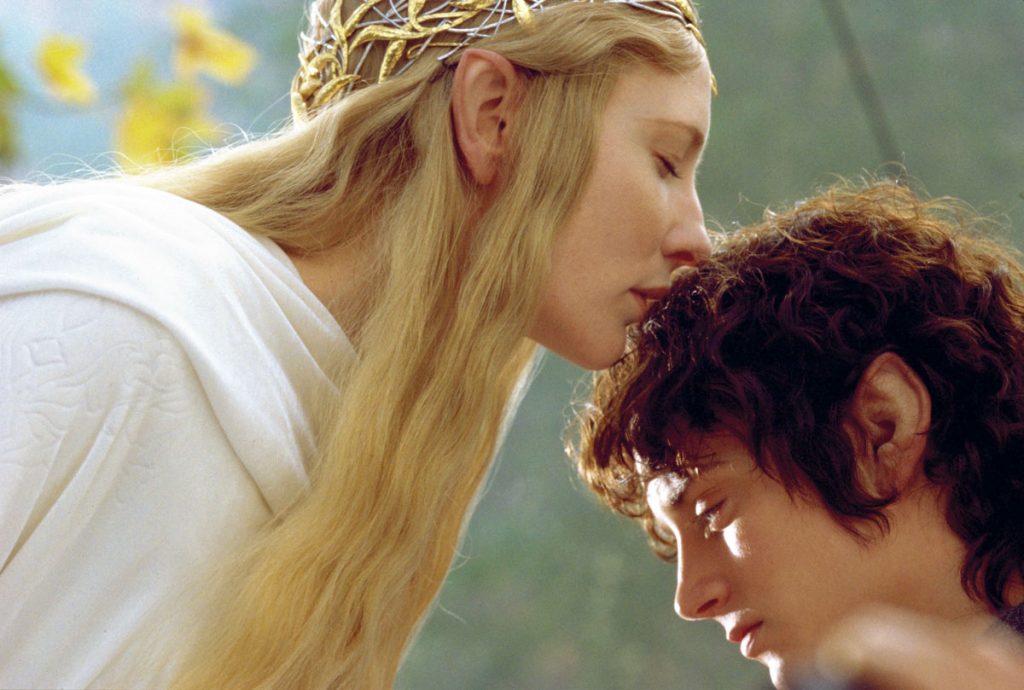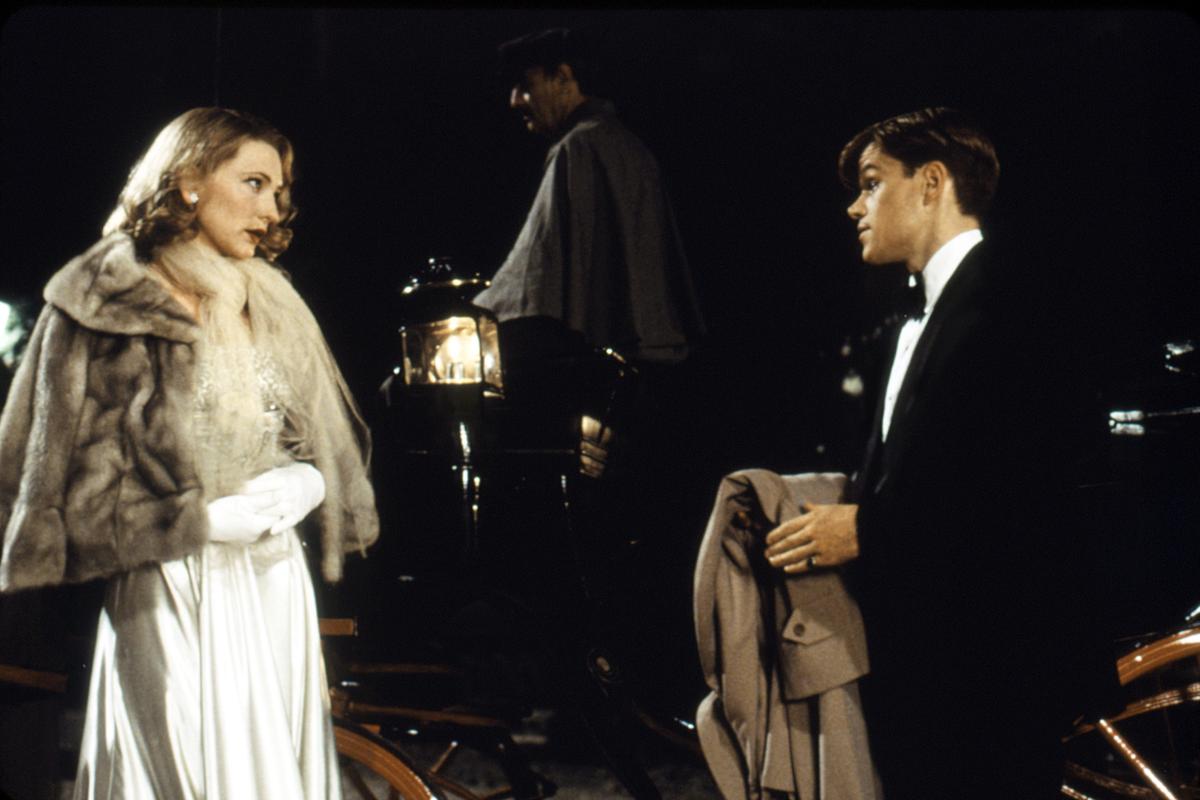The year 2013 is half over and yet it’s clear that Cate Blanchett’s performance in Woody Allen’s Blue Jasmine is not only the head-and-shoulders standout so far, few can imagine it being topped come year’s end. In fact, the Oscar talk has become relentless. And not merely talk about a nomination: it’s winning the prize itself that seems foreordained. Playing a former one-percenter who finds herself suddenly thrust into the world of the ninety-nine percent, Blanchett gives a fearless no-holds-bared performance whose ferocity is breathtaking. Against a cinematic landscape dominated by cartoons and “tentpoles” Blanchett’s “Jasmine” looms as “The Attack of the 50-Foot Serious Actress.” For Jasmine (self-renamed from Jeanette) is not only pretentious, snobbish and hateful to nearly everyone who crosses her path—she’s losing her mind as well. Yet because of the very intensity with which Blanchett seizes the role of this thoroughly unlikeable woman, she never loses a hold on a moviegoer’s rapt fascination—even though there’s not the slightest chance of the character’s ever winning anyone’s affection. As one might expect, this didn’t come out of nowhere—and by that I’m not referring to Woody Allen’s superb screenplay.
Born in 1969 in Australia to an American father and an Australian mother, Blanchett graduated from Australia’s National Institute of Dramatic Art in 1992, establishing herself as a promising theatrical newcomer the following year for her performance in a production of Caryl Churchill’s Top Girls. Television work soon followed, while she continued to impress on stage in Hamlet, The Tempest, and Oleanna. She made her film debut in Paradise Road (1997) a Bruce Beresford-directed drama about a women’s prison camp on the island of Sumatra during World War II, starring Glenn Close. It was followed the same year by Oscar and Lucida, Gilliam Armstrong’s film about a pair of social misfits who find they excel at professional gambling. Her first turn as England’s most famous queen in Elizabeth (1998) came next. But where she truly excelled was in Bandits (2001) Barry Levinson’s marvelous crime comedy starring Bruce Willis and Billy Bob Thornton as the “sleepover bandits”—so called because of their robbery procedure. They go to the home of the selected bank’s manager, hold him hostage overnight and then the next day come to work with him and rob the bank before it’s open for business—without muss or fuss. As Kate Wheeler, the very neglected wife of one of the said managers who runs off with the robbers rather than remain in her plush but boring life, Blanchett finds antic depths in a role that as written is merely amusing. She makes it comically compelling when she joins forces with Willis and Thornton in love and larceny. As a result Bandits emerges as a cross between Bonnie and Clyde and Jules and Jim. Just what Blanchett can do with a role if given half a chance is deliciously demonstrated in an early scene where the frustrated Cate rocks out to Bonnie Tyler.
Cate Blanchett in Bandits
Blanchett’s ultra-vigorous hair-tossing in that scene only serves to underscore her awareness of what a feast for the eyes she can be—a fact brought into very conscious play in her embodiment of Galadriel in the Lord of the Rings and Hobbit movies.
Likewise in Elizabeth: The Golden Age (2007)
And then there’s her Katharine Hepburn in Martin Scorsese’s The Aviator (2004) for which she copped her first Oscar (Blue Jasmine apparently looming as her second.)
As is clear this is no mere ”impersonation” but a genuine interpretation of a character with whom we’re all familiar. But where she truly impresses is subtle roles like Meredith Logue, the restless romantically-inclined rich girl on holiday in The Talented Mr. Ripley (1999) whose periodic encounters with the title character nearly upend his dark and devious plans.
Writer-director Anthony Minghella had originally conceived of Meredith as a smaller role. But he enjoyed working with Blanchett so much that he expanded it—to the film’s enormous benefit. This appetite for acting took it’s boldest form in I’m Not There (2007), Todd Haynes’ wildly experimental exploration of Bob Dylan with six different actors cast to play aspects of his actual life and artistic persona. Richard Gere, Heather Ledger, Ben Wishaw, and Christian Bale are natural fits as incarnations of the adult Dylan. Being a small black boy Marcus Carl Franklin is clearly a reference to the traditional folk music which Dylan proceeded to alter. Cate Blanchett is even further out on the experimental limb as “Jude Quinn”—Dylan during the “electric” period that produced his great album Blonde on Blonde and took him far afield from folk music in way that was both embraced by the public and rejected by “purists” at the time. And then there were critical adversaries of an even more thoroughgoing sort who Blanchett’s “Jude” takes on in this scene:
Married with three sons, and running the Sydney Theater Company with her husband Andrew Upton—where most recently she starred with Isabelle Huppert in a production of Genet’s The Maids—Cate Blanchett has placed as many demands on herself personally as will be forthcoming from a film industry that is avid to annex her in Blue Jasmine’s wake. Characteristically she has chosen the road less-travelled for her next feature will be Carol, Todd Haynes’ adaptation of Patricia Highsmith’s first novel. Also known as The Price of Salt it was written after Highsmith’s first novel (and massive cultural breakthrough) Strangers on a Train, and was published under the pseudonym “Claire Morgan.” Dealing with the romance that develops between a young woman working part time at a department store and an elegant older woman she first meets as a customer, it was marketed as “lesbian pulp” along the lines of Ann Bannon and “Vin Packer” (the pen name of novelist Maryjane Meaker who was one of Highsmith’s lovers). But standing alone in this genre Carol has a happy ending.
As one might expect Blanchett will play the title character, with the exceptionally talented Mia Wasikowska as her young inamorata. Clearly he won’t have any difficulty in getting Cate Blanchett to give her all in the leading role. Because “all” is all she knows.







